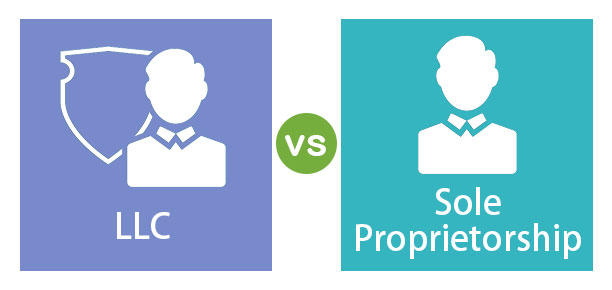The number of new business applications in the United States has grown steadily over the past decade. In 2010, this number was at 2.5 million. It’s grown to such an extent that 1.35 million new business applications were made in the first quarter of 2021 alone.
Image via Oberlo
Numerous first-time entrepreneurs are trying their hands at starting and scaling up their companies. However, this process is not easy by any means.
You’d have to figure out your funding, employees, office space, and so much more. Among all of this, determining your business structure can be quite a challenge.
To help you choose between two of the most popular structures — Sole Proprietorships and Limited Liability Companies (LLCs) — we’ve put together this guide.
How is the Business Taxed?
The business structure you choose also has different tax implications. Sole Proprietorships and LLCs both have a similarity in the sense that they offer pass-through taxation.
Essentially, this means that all the income of the business would pass to the owners. As a result, you’d be saved from double taxation. However, you’d have to pay self-employment tax in this case.
You can’t avoid this in Sole Proprietorships. However, you could avoid it in LLCs by getting it taxed as an S-Corp. This would treat you as an employee of the business. In such a case, you’d have to pay corporate taxes for the S-Corp.
How Do You Form the Business?
The process of forming a business differs largely based on the business structure you choose. You can seamlessly start a Sole Proprietorship and run it under your name.
However, to give it a different name, you’d have to apply for a fictitious business name by filing for a DBA and paying the filing fees.
For LLCs, you’d have to first file the Articles of Organization with the Secretary of State and then draft an Operating Agreement. Post that, you’d have to pay the state filing fees. These fees would also need to be paid annually.
Who Owns the Business?
Sole Proprietorships are owned and run by a single person. On the other hand, one or more entities can start and run an LLC.
These entities could include individuals, other LLCs, and even foreign firms. The owners of an LLC are called members.
The similarities and differences don’t stop here though. To learn more about LLCs and Sole Proprietorships, check out this infographic created by GovDocFiling.
 Image Courtesy: GovDocFiling
Image Courtesy: GovDocFiling
About the Author: Brett Shapiro is a co-owner of GovDocFiling. He had an entrepreneurial spirit since he was young. He started GovDocFiling, a simple resource center that takes care of the mundane, yet critical, formation documentation for any new business entity.










